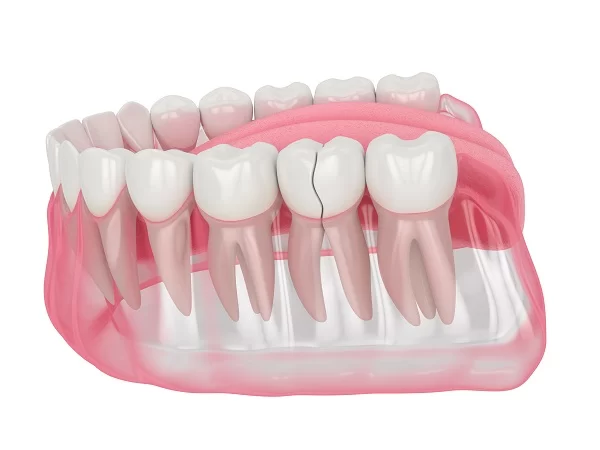
How to Treat a Tooth Fracture: Expert Guide to Dealing with a Broken Tooth
- 1. Understanding Tooth Fractures: Causes and Symptoms
- 2. Immediate Care for a Broken Tooth: What You Should Do
- 3. Treatment Options for a Fractured Tooth: What to Expect
- 4. Home Remedies for Minor Tooth Fractures
- 5. Real-Life Cases: How Proper Treatment Saved the Day
- 6. Preventing Tooth Fractures: Tips for Stronger Teeth
1. Understanding Tooth Fractures: Causes and Symptoms
A tooth fracture occurs when a tooth experiences damage due to an external force, such as trauma or pressure. Fractures can range from small cracks to complete breaks, and they often occur from accidents, sports injuries, or biting on hard objects. A tooth fracture can also develop due to weakened enamel or untreated decay.
Symptoms of a tooth fracture include:
- Pain when chewing or biting
- Sensitivity to hot or cold
- Visible crack or chip in the tooth
- Swelling in the gums near the fractured tooth
- Bleeding from the affected area
If you notice any of these symptoms, it’s important to seek dental care as soon as possible to prevent further damage.
2. Immediate Care for a Broken Tooth: What You Should Do
If you suffer from a tooth fracture, taking immediate action can help prevent further damage and ease the pain. Here are the steps to follow:
- Rinse with Warm Water: Gently rinse your mouth with warm water to clean the area and remove any debris. Avoid using hot or cold water, as it can increase sensitivity.
- Apply a Cold Compress: If there’s swelling or pain, apply a cold compress to the outside of your mouth or cheek to reduce swelling.
- Save Any Fragments: If a piece of the tooth has broken off, save it in a clean container with some milk or saline solution. Your dentist may be able to reattach it.
- Avoid Using the Damaged Tooth: Until you receive professional treatment, avoid chewing or biting with the fractured tooth to minimize further damage.
- Contact Your Dentist: Call your dentist immediately to schedule an emergency appointment. Timely treatment is crucial to avoid infection or long-term damage.
3. Treatment Options for a Fractured Tooth: What to Expect
The treatment for a fractured tooth depends on the severity of the damage. Here are some common treatment options your dentist may recommend:
- Dental Bonding: For small cracks or chips, your dentist may apply a tooth-colored resin to bond the broken area together. This treatment is quick and effective for minor fractures.
- Dental Veneers: If the fracture is on the front of the tooth, a veneer may be placed over the tooth to restore its appearance and function.
- Dental Crowns: If a significant portion of the tooth is fractured, a dental crown may be placed to cover and protect the damaged tooth.
- Root Canal Therapy: In cases where the fracture has exposed the pulp of the tooth, a root canal may be necessary to remove the infected tissue and prevent further complications.
- Tooth Extraction: If the fracture is severe and cannot be repaired, your dentist may recommend extracting the tooth to prevent infection or further damage.
4. Home Remedies for Minor Tooth Fractures
For minor fractures that don’t require immediate professional treatment, there are a few home remedies that can help manage pain and discomfort until you see a dentist:
Warm Saltwater Rinse
Gargling with a saltwater solution can help clean the area and reduce inflammation. Mix a teaspoon of salt in warm water and rinse your mouth gently, especially around the fractured tooth.
Over-the-Counter Pain Relief
If you’re experiencing pain, over-the-counter pain medications like ibuprofen can help alleviate discomfort. Follow the recommended dosage instructions carefully.
Cold Compress
To reduce swelling and numb the area, apply a cold compress to the outside of your mouth. Wrap ice in a cloth and hold it against your cheek for 15–20 minutes at a time.
5. Real-Life Cases: How Proper Treatment Saved the Day
Let’s look at a few real-life cases where professional dental care made all the difference:
Case 1: Sarah’s Sports Injury
Sarah, a 28-year-old athlete, fractured her front tooth during a basketball game. She immediately rinsed her mouth with warm water and applied a cold compress. After saving the broken piece of her tooth, she contacted her dentist, who was able to reattach the fragment with dental bonding. Sarah was able to return to playing sports in no time, with her smile intact!
Case 2: John’s Chewing Incident
John, a 45-year-old professional, bit down on a hard nut and cracked one of his molars. After seeing his dentist, he opted for a dental crown to restore the tooth’s function. The crown not only protected the tooth but also improved its appearance. John learned the importance of avoiding hard objects and scheduling regular dental checkups.
6. Preventing Tooth Fractures: Tips for Stronger Teeth
While accidents can happen, there are steps you can take to reduce the risk of tooth fractures:
- Wear a mouthguard during sports or other high-risk activities to protect your teeth from trauma.
- Be cautious when eating hard foods or candies that may put excessive pressure on your teeth.
- Visit your dentist regularly for checkups to identify and address any dental issues before they cause a fracture.
- Maintain strong tooth enamel by practicing good oral hygiene and avoiding excessive sugary foods.
If you’ve experienced a tooth fracture or need advice on treatment options, our experts at Dentistry Toothtruth are here to help. Whether it’s a minor crack or a major fracture, we offer comprehensive dental solutions to restore your smile. Learn more about our services here.







 Shine Orthodontics and Pediatric Dentistry4.0 (858 review)
Shine Orthodontics and Pediatric Dentistry4.0 (858 review) Brick Dental Studio4.0 (101 review)
Brick Dental Studio4.0 (101 review) SUMMER STREET DENTAL5.0 (153 review)
SUMMER STREET DENTAL5.0 (153 review) The Haddon Dentist - Andrew J Dietz, DDS4.0 (613 review)
The Haddon Dentist - Andrew J Dietz, DDS4.0 (613 review) Hamilton Mill Orthodontics4.0 (27 review)
Hamilton Mill Orthodontics4.0 (27 review) Jones Family Dentistry4.0 (12 review)
Jones Family Dentistry4.0 (12 review) The Importance of Oral Health Education During Pregnancy for a Healthy Pregnancy
The Importance of Oral Health Education During Pregnancy for a Healthy Pregnancy Best Tips for Brushing Your Teeth Properly for Healthy Gums: Essential Techniques for Oral Health
Best Tips for Brushing Your Teeth Properly for Healthy Gums: Essential Techniques for Oral Health Why Skipping Dental Checkups Can Lead to Bigger Oral Health Problems
Why Skipping Dental Checkups Can Lead to Bigger Oral Health Problems Advantages of Porcelain Dental Restorations
Advantages of Porcelain Dental Restorations How Can Diabetes Cause Tooth and Gum Problems? Preventing and Managing Oral Health Issues
How Can Diabetes Cause Tooth and Gum Problems? Preventing and Managing Oral Health Issues Healthy Habits for Promoting Good Oral Health and Hygiene: Tips for a Healthy Smile
Healthy Habits for Promoting Good Oral Health and Hygiene: Tips for a Healthy Smile